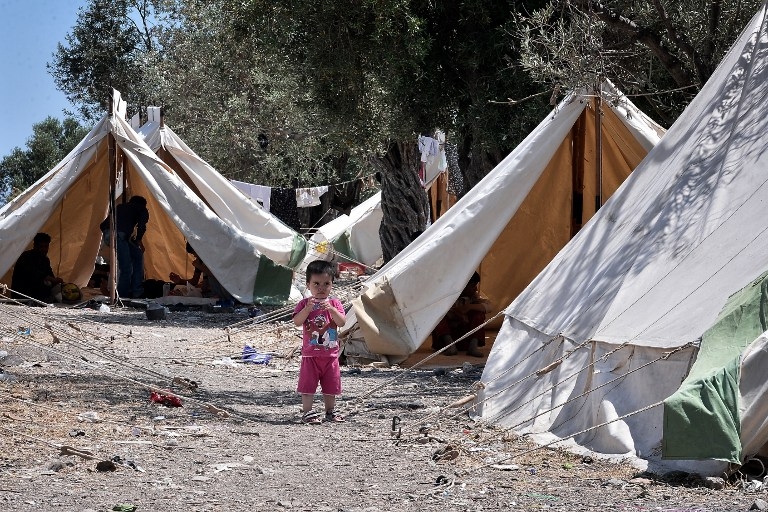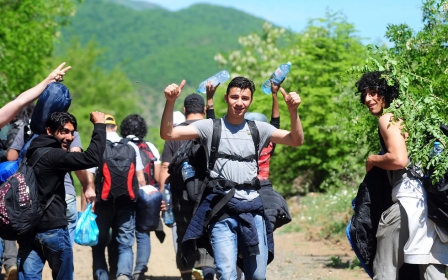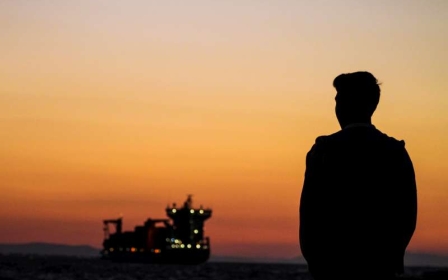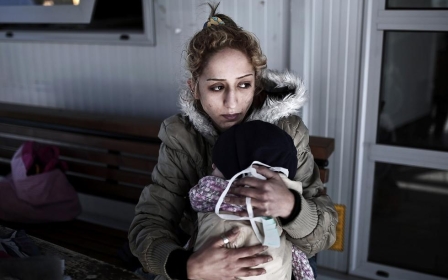Human rights abuses driving migrant crisis in the Mediterranean: HRW

Human rights abuses, rather than economic interests, are the key driving factor behind a migrant crisis in the Mediterranean, which has seen thousands of people drown during boat journeys to Europe this year, a new Human Rights Watch (HRW) report finds.
The Mediterranean sea, the world’s deadliest migration route, has seen a huge uptick in attempted crossings so far in 2015 – over 102,000 people reached Europe alive between 1 January and 9 June according to the International Organisation for Migration.
Unprecedented numbers of people are also dying in attempted crossings, as smugglers crowd hundreds of people onto unseaworthy vessels, with some attempting the passage on rubber dinghies.
The report’s release comes as the numbers of people displaced worldwide hits the highest levels ever recorded, and days ahead of a new European summit opening on 25 June and focusing on the growing numbers of people attempting to claim asylum in the EU.
The drowning of more than 1,000 people in a single week in April, when Europe-bound boats capsized off the Libyan coast, prompted EU leaders to hold emergency summits aimed at stemming the migrant crisis in the Mediterranean.
It was decided to scale up funding to an EU-run sea rescue mission, whose budget is now equal to that of an elapsed Italian-led mission named Mare Nostrum, which saved thousands of lives in the Mediterranean between 2013 and 2014.
EU leaders also said they intended to take military action against people-smugglers operating in Libya, sparking concern among Libyan leaders.
Since the landmark summit EU leaders have remained split over plans to resettle refugees, with Italy complaining that other European countries are being “selfish” by not pledging to take in enough asylum seekers.
HRW’s new report, titled “The Mediterranean Migrant Crisis”, slams the European response to a crisis that it says comes “at a time of severe humanitarian crisis around the world”.
So far in 2015, more than a third of those arriving on European shores have been fleeing the bloody war in Syria, according to data collected by the UN.
Syrian nationals, together with people from Afghanistan, Somalia and Eritrea, made up 60 percent of arrivals to EU countries, mostly Greece, Malta and Italy.
One man whom HRW interviewed, a 30-year-old lawyer from the Islamic State (IS) group’s Syrian stronghold town, Raqqa, said he had fled his home because he feared he would be targeted for his activist work with an organisation combating violence against women.
“My only dream is to go to another European country to show the world what is happening there,” Mohammad (not his real name) told an HRW researcher on the Greek island of Lesvos.
As well as adults, HRW met children who had fled the violence with their families.
A 10-year-old boy said he felt his “future had been destroyed” when he saw his school being bombed.
Of the nearly four million refugees to flee since the start of an uprising against President Bashar al-Assad in 2011, most have been taken in by countries neighbouring Syria – Turkey has accepted over 1.7 million Syrian nationals, while over a quarter of Lebanon’s population is now made up of refugees from over the border.
One man, though, told HRW that he had made the risky crossing to Greece after the situation in Lebanon deteriorated.
“When I first arrived,” he said, “Lebanese people were very hospitable to me.
“Now they treat me as if I am a terrorist or a security threat.”
Authorities in Lebanon have been wary of the violence next door spilling over into their territory, which now houses the highest per capita proportion of refugees in the world.
Lebanon this year began requiring Syrians crossing the border to obtain a visa, and sign a pledge not to find work.
The government, which has been praised for its efforts to integrate Syrian refugee children into the existing education system, says it implemented the new rules because it cannot deal with the large number of Syrians still flowing across the border.
With Syria’s neighbours struggling to cope with the prospect of housing refugees long-term, and “given the number and extent of protracted refugee crises around the world”, HRW’s new report urges European governments to resettle greater numbers of people fleeing the violence.
The EU has so far pledged to resettle 45,000 Syrian refugees among its 28 member states, which have a total population of over 500 million.
“This is a difficult challenge for the EU,” said Judith Sunderland, Western Europe researcher at HRW, “but one where human rights must take centre stage.
“The majority of those crossing the Mediterranean are taking terrible risks because they have to, not because they want to. Saving lives and increasing safe pathways into Europe should be the EU’s priorities.”
Middle East Eye propose une couverture et une analyse indépendantes et incomparables du Moyen-Orient, de l’Afrique du Nord et d’autres régions du monde. Pour en savoir plus sur la reprise de ce contenu et les frais qui s’appliquent, veuillez remplir ce formulaire [en anglais]. Pour en savoir plus sur MEE, cliquez ici [en anglais].




